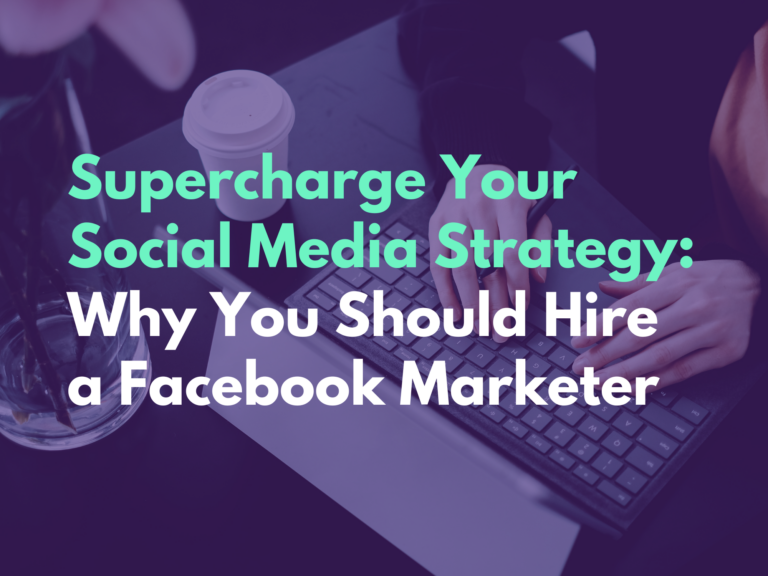New survey data compiled in an August 2022 McKinsey report shows how much freelance and independent work has grown in the U.S. over the past few years.
According to the American Opportunity Survey, “a remarkable 36 percent of employed respondents—equivalent to 58 million Americans when extrapolated from the representative sample—identify as independent workers.” That’s up dramatically from a 2016 estimate from McKinsey that put that percentage closer to just 26 percent.
What’s driving what the authors of this survey call “a seismic shift in how Americans work and support themselves?”
There are many factors that we can look to: the impact that the global pandemic had on the way we work, the increasing number of Uber-like apps that make gig work easier for people, or perhaps the growing acceptance of remote work by employers.
Regardless of the reason, we know that more people are choosing to leave full-time jobs and leaning into freelance lifestyles that offer more flexibility, more control, and even more earning potential.
As marketing leaders, we need to decide how we’re going to respond to this change. Do we sit back and watch as our most talented employees leave us to become full-time freelancers? Should we think differently about how to structure and staff our marketing teams? Are we prepared to attract and retain top freelancer talent who can help us continue to invest in the marketing channels and initiatives we know we need in order to grow?
And if the structure of our team changes, that is, if we build hybrid teams that include both traditional full-time employees and modern freelancers, how should we approach culture-building going forward?
This last question is something that has been on my mind a lot lately, and one that I believe other leaders are wondering too.
In this article, we dig deeper to answer this question and gain a better understanding of how organizational culture should impact engagements with freelancers.
Corporate Culture is Going Through a Mid-Life Crisis
Even before the pandemic brought major changes to the way we work, employees’ attitudes about what perks and benefits mattered most were starting to shift.
Just a few years ago, trendy office perks like company lunches, team happy hours, ping pong tables, and beer kegs were hugely important in attracting top talent and younger generations to new startups and growing companies.
But as the millennial generation has aged, they’ve begun to seek employers who can provide them with more meaningful perks like flexible working hours, remote-friendly policies, unlimited PTO, better 401K options, stronger health insurance coverage, and mental health support.
Without these perks in place, employees are more likely to leave employers in search of a better option.
In a recent Money.com article on the topic, authors share data that illustrates the growing importance of what they refer to as “nonwage incentives:”
“In a study by the research firm Jefferies last fall, 31.6% of workers who had recently quit their jobs said that a four-day workweek would have convinced them to stay. (Though money wouldn’t have hurt either: 42.8% said a raise would have been enough to keep them at the job). In a September survey by Betterment’s 401(k) Business, 65% of people said they could be convinced to leave their current job for one that offers a better retirement plan.”
Another survey performed by LiveCareer and Oyster asked respondents to rate employee perks in order of importance. The data showed the following:
“38% of Millennials, 33% of Gen X and 32% of Gen Z identified flexible working benefits as most important…flexible working options was the second-most important priority for all age groups, and “the ability to work from anywhere” was third.”
The story this data tells us is obvious: employees increasingly want to be able to work where they want and when they want.
With physical in-person collaboration becoming less important and less common, it opens up the opportunity for marketing leaders to build hybrid teams comprised of full-time employees and freelance workers who live all across the country and even the world.
Do Freelancers Care About Company or Team Culture?
At this point in the article, any good leader thinking about hiring more freelancers is probably asking this question:
“Do freelancers actually care about culture?”
To answer this question, I got perspectives from two active freelancers working in the marketing space.
I started by asking them a simple question: how important is company culture to you when working with clients as a freelancer?
I spoke first with Nick LeRoy, a freelance SEO consultant.
“This is a multi-faceted question,” said Nick. “In theory, company culture should not have a direct impact on a freelancer or their work. However, as a freelancer who has worked for companies with amazing cultures and others with toxic cultures, I can tell you it does have a direct impact on freelancers.”
Nick went on to explain, “a company with low morale and or poor culture often has employees who lack the motivation to go the extra mile. Freelancers are often assessed on the value they are able to bring to the client. If your work relies on others within the organization (mine does to a great extent) the willingness of a point of contact or team members to “buy in” is critical. If these individuals aren’t active in your engagement, it can have a negative impact on your deliverables and or the results based on your strategy/recommendations.”
I also asked the same question to Lian Parsons, a Boston-based writer and journalist.
“What I mainly look for in company culture as a freelancer are primarily factors that affect my ability to do my work to the level I’m proud of,” said Lian. “Clear and timely communication and expectations are probably the most important to me. That general level of respect should be reflected across the company in general.”
Lian also added, “I also avoid working with companies/orgs/businesses that directly oppose my personal morals. If I find out that a potential client is racist/sexist/queerphobic/ableist/etc., I will not work with them and will dissuade fellow freelancers from working with them as well.”
These perspectives were helpful, but I still had another question. What about culture-building activities? If you manage a hybrid team that includes freelancers, should you work to include those freelancers in more traditional culture-building activities?
I wanted to know what our freelancers thought.
“I do not believe that companies should feel compelled to include freelancers in their culture-building events,” said Nick. “Extending an open invitation to your freelancers may be appreciated, but it also should never be required (unless the company is willing to pay for time/resources, etc.) Often freelancers opt for the “freelance life” because they did not enjoy this component of their previous gigs. In my personal experience, culture building and face-time can help with the overall engagement but isn’t critical to success.”
Lian also had a good perspective on this question.
“I think employers should build freelancers into how they treat their employees overall (as well as account for them in their budgets) and go in with a clear strategy at how best to build the relationship on both sides,” said Lian. “If the respect and communication are there, I believe the rest will follow.”
While these are just perspectives from two freelancers, I think it’s safe for us to believe that culture still matters to people whether they are working as full-time employees or not.
The question that remains is this:
If we believe culture-building with freelancers is indeed important, what should it look like?
How Should Employers Approach Culture-Building with Freelancers?
Knowing that you might be adding more freelance marketers to your team in the near future, what can you do to build culture with them and keep them loyal to your company?
Here are a few recommendations:
Recommendation #1: Treat everyone as equals
You can’t think of your team as “the full-time people” and “the freelance people.” For your hybrid team to work, you need to treat them all as valued, impactful members of your team.
Here are quick reminders to ensure you’re treating everyone equal:
- Avoid impromptu meetings that freelancers don’t have the opportunity to attend
- Avoid separate meetings that happen with “full-timers”
- Speak to freelancers in the same way you would speak to a full-time employee
- Give everyone the same level of respect
Recommendation #2: Invite freelancers to celebrate success too
As Nick said in his response to my second question, you can’t force a freelancer to attend a virtual happy hour or team stand-up, but that doesn’t mean you can’t still extend an invitation. You’ll find that the longer your freelancers work for you and with the other members of your team, the more they feel like genuine, loyal team members themselves.
If you want to plan an event to celebrate a milestone or show appreciation for hard work, make sure your freelancers know they are welcome to attend.
Here are quick reminders to help your freelancers feel more included:
- Plan team events during times when you know everyone could attend
- Call out freelancers during team events and give them the same type of praise you’d offer to a full-time employee
- Make things equal—if you’re giving free lunch to your FTEs or sending them a box of swag, do the same for your freelancers
Recommendation #3: Get to know all your team members on a human level, freelancers included
Remember that freelancers are human just like you and just like your full-time employees. They are not just marketing execution robots that care only about the tasks you’ve hired them to do. They have personal lives outside of work, passions, interests, problems, and dreams. Get to know them the same way you get to know your full-time employees. Show them that you care about them as human beings and not just for the great work they do for you.
Here are a few questions you can ask your freelancers throughout the week to get to know them better:
- “What do you like to do when you’re not freelancing?”
- “How are you trying to grow in your career or as a person?”
- “What are you most excited about in your life right now?”
Again, keep in mind that you can’t and should not require a freelancer to answer these questions—but you can still ask them and invite them to answer if they feel comfortable doing so.
Final Thoughts
The working world is changing. More marketers are choosing to leave full-time jobs in favor of flexible freelance careers.
It’s your job as a marketing leader to understand how to capture, capitalize on, and retain that talent.
Need help building your hybrid marketing team? Let us help you find and hire the right marketing expert for your needs.


